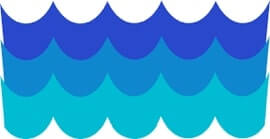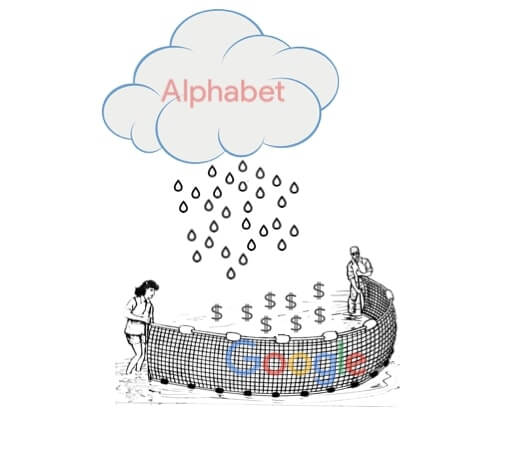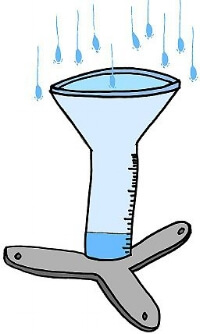In 2013, I had my mind blown while listening to Horace Dediu's podcast "Critical Path". He described a brilliant way of thinking about Google's business model. At the time, Alphabet wasn't in the picture yet but his analogy holds true today in 2018.
The segment is about 15 mins long. Starting at the 33 minute mark the co-host introduces the topic.
Dediu presents an analogy that I have used countless times in conversations to reason with people as to why Alphabet does what it does.
Here's how it goes...

Imagine a river. In the river are fish.
At the mouth of the river, right before it empties out into the ocean, there are nets thrown across the river catching all the fish.
If the goal is to catch the most fish then one approach is to increase the amount of water in the ecosystem upstream that's headed toward your nets.
If there was a lot of rain, the river would flow higher and faster. Figuring out how to make it rain on command would mean your nets would fill more quickly with fish.
Dediu's analogy presents the river, and the fish in it, as internet use and the billions of search queries performed every day by people across the globe.
The nets at the mouth of the river are the Google Ads shown to people searching.


